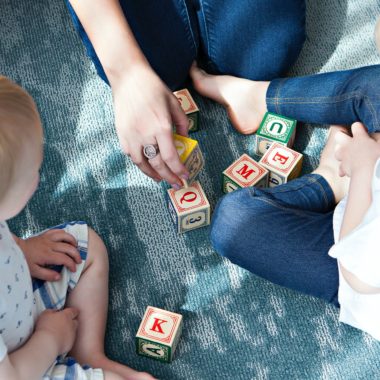‘We count it as a certainty that everyone naps in paradise.’ – Anonymous
Sleep! That amazing hibernation technique nature has programmed into us as a required, daily need for rest, balance and rejuvenation.
Few things in the world are as distressing for any parent as a child that does not sleep. Be it at night or siesta time, a toddler with a poor sleeping culture implies many things for the parents, but rest assured, comfort is not one of them.
For one, children who do not sleep when they should often show signs of tiredness and may sulk or be cranky. Worse still, they may cry, scream or squeal in the middle of the night.
Before long, even the most patient and doting parent will reach their wits end and start to worry. They will also start to seek solutions to bring this ‘nightmare’ to a quick end, never mind that they too won’t be getting much shut-eye time.
Related: Developmental Delays In Children-Knowing What It Is And What To Do
If you’re still thinking what the fuss is about getting your child to sleep, remember that unlike children, adults have responsibilities – these often demanding a large chunk of time daily. Besides, you’re less likely to sleep when your toddler is bawling all night. Lack of good sleep will consequently affect your physical, mental, and psychological wellbeing, impeding creative function, memory retention, and productivity. More so, there’s nothing admirable about being dozing off minutes into an important strategy meeting.

WHAT TO DO
Children mostly have an active day and so, getting them to wind down at dusk can be a chore. Not to worry, these 9 simple hacks will help you both get some ZZZs in no time:
1. Sound machine: Soothe your child to sleep with the constant, repetitive sound that emanates from sound machines. The ocean waves, white noise or heartbeat sound and projection of images like stars and animal shapes that the machine casts on the ceiling above can evoke a cozy feeling that lulls a person to sleep with ease.
2. Set the mood: Help your baby sleep by creating the right atmosphere. Dim the lights, keep toys put of sight, kill screen time once bedtime approaches. The human brain releases melatonin, a neurotransmitter that signals the body to sleep. However, the blue light emitted from mobile device screens inhibits the release of melatonin.
3. Kill TV early enough: Just as the blue light from gadgets disrupts the release of melatonin, the bright light from television or computer screens also hinders the circadian rhythm (the body’s natural sleep-wake regulatory cycle). Switching off TV and other bright lights for up to an hour before bed can help to improve sleep time and quality.
4. Supplements: Vitamin D deficiency may compromise the ability to ease into a sound sleep. However, Vitamin D supplements, sleep disturbances can be nipped in the bud. Also, although more common in senior citizens, melatonin deficiencies occur. With Melatonin supplements, as well, sleep quality and duration can be boosted. However, medications should only be administered by a doctor or paediatrician.
5. Check their environment: Are they too scared to sleep alone? Check if there are any possible threats to their safety. It is advisable to tuck your child in bed when in a sleepy but awake state so they can learn to soothe themselves back to sleep if they wake up at night. However, if your child doesn’t feel safe about being in their bed or in the dark alone, perhaps you want to linger around till they’ve slept before you retire into your own room. Also, it helps to avoid scary TV shows, movies, and computer games. You may also consider setting a common bedtime for all your children if you have multiple kids. That way, no one feels stuck in bed and left out from the ‘fun’. Bedtime takes on a more communal feel!
6. Limit food and drinks before bedtime: While a little snack before bedtime is okay, do not give dinner just before it’s time to sleep in order to allow food digest. Avoid drinks especially with caffeine – many beverages contain caffeine so always check the label.
7. Maintain a bedtime routine: Start preparing for bedtime the same time every single day. This subconsciously prepares your child whenever it begins to understand that he would need to sleep in an hour or two. If bedtime is 7 pm, try to stick to this.
8. Aromatherapy: Essential oils contain medicinal compounds that make them useful for applications such as massage, topical medication, and inhalation. They also contain negative ions, antioxidants, and plant compounds with medicinal effects. Chamomile oil, for instance, evokes a calming, sedative effect that can improve sleep and relaxation.
9. See through your child: While these hacks really do help make a difference, sometimes, it just boils down to understanding your child’s preference and their unique makeup. What sleep patterns do they naturally follow? Contrary to popular opinion, a buzzing environment can be the perfect stimulant for sleep. Some children may sleep more easily amidst their siblings’ activities than in a quiet environment. Therefore, watching your child’s independent sleep patterns can help you figure out what works best for them.
Related: Bored Kids? Fun Games To Keep Your Kids Happy While Staying At Home
Sleep is essential to every human being, for rest and rejuvenation; more so, for your little one’s mental and cognitive development. The earlier you notice the problem and set out to tackle it, the easier it is to prevent your child from getting anxious as sleep time approaches. You may need to compliment two or more of these hacks and others to hit the jackpot.
Remember, helping your child get the needed sleep quota can make all the difference for you both. Find a routine that works for your child and stick with it.
- How Setting Postpartum Boundaries made me lose my brother - February 6, 2025
- How To Revive Your Sex Life After Baby - October 17, 2023
- The Sona App Aims To Make Your Child “Sleep Like A Baby” And We Tested It - May 14, 2023








